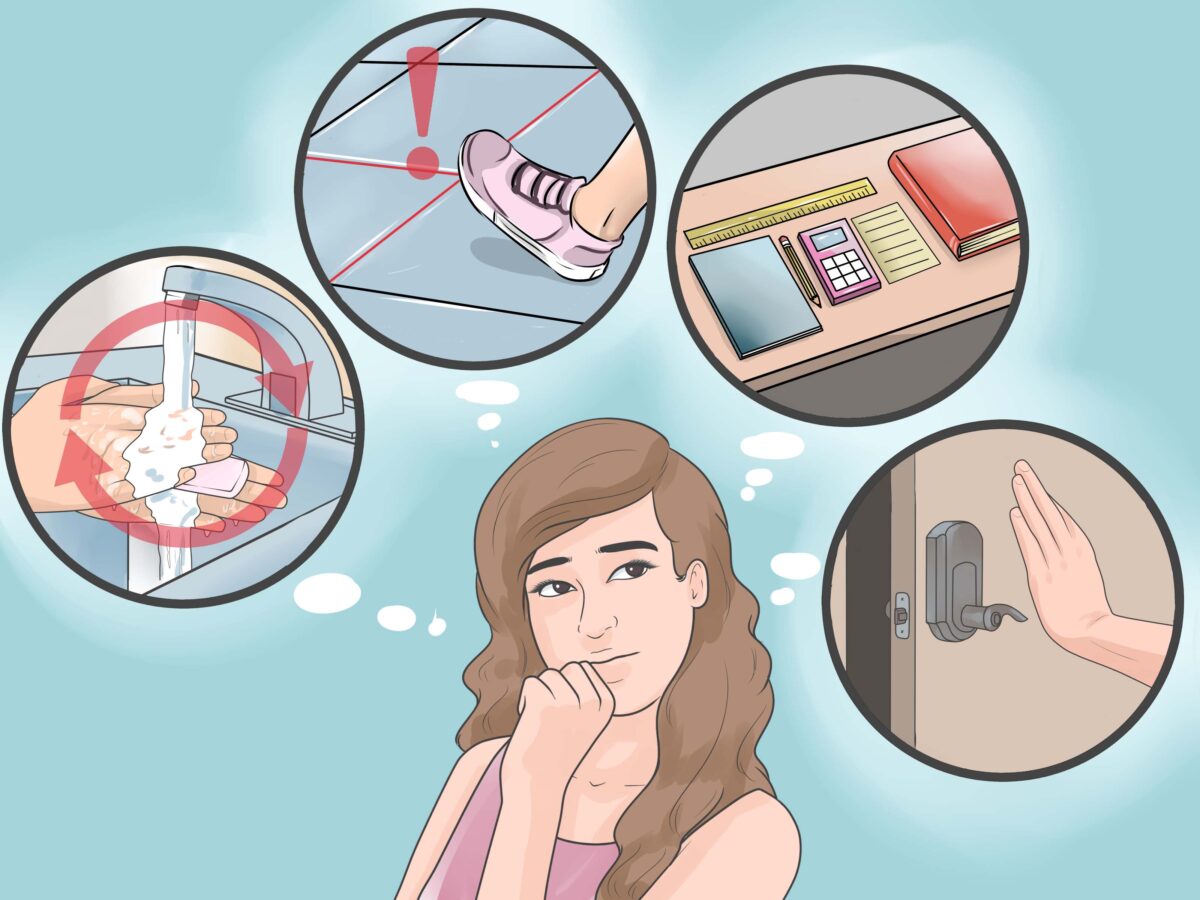OCD is known for obsessive-compulsive disorder (OCD). It is a type of mental illness. Typically, this condition is seen in people who are in the juvenile age range or have reached adulthood. People experience obsessive thoughts and compulsions during such situations. OCD patients ritualistically perform certain actions as a routine or have certain thoughts that haunt them again and again. Some of the most common activities that OCD people often do are to count things, wash their hands frequently, do more cleaning or see if the doors and windows are closed, etc.

Some patients with OCD have difficulty removing all unnecessary or chronic junk. These activities occur to the extent that most of them endanger their normal life and their daily life is negatively affected. Although most adult OCD patients find that their strange behavior is incomprehensible, they still cannot stop.
What are the 4 types of OCD?

Compulsive detection, contamination or mental contamination, symmetry and order, and hoarding are various types of obsessive-compulsive disorder. In a checking type disorder, it is always necessary to check the car, water tap, gas or electric stove cobs, house lights and candles, emails and letters, etc. to reassure the patient. This can sometimes damage that particular object.

Another type of observation is a concern in mental contamination where the patient thinks about contamination. Due to this, the patient may harm themselves or their loved ones. In symmetry and order, a patient always tries to keep everything correct and symmetrical. In OCD hoarding, people avoid abandoning useless things and worn-out things.
How many people have OCD?
According to a famous psychiatrist in Delhi, OCD affects about 2.3% of people worldwide at some point in their lives. Typically, symptoms begin after the age of 35, although many develop OCD symptoms even before 20. Men and women are affected equally by this disorder.
What are the early symptoms of OCD?

It is described as an anxiety disorder, in which signs are indicated:
- Repetitive behavior
- To be governed by rules
- Hard time
- Wash hands
- Excessive cleaning
- Behavior check
- Count
- Unwanted sexual thoughts
- Seek assurance
- Skeptical of relationship
How to diagnose obsessive-compulsive disorder?
There are four main ways to know if a patient has obsessive-compulsive disorder. These are physical examination, laboratory tests, psychological evaluation, and diagnostic criteria for OCD. During the physical examination, the famous psychiatrist in Delhi discusses the patient’s feelings, thoughts, and habits. There may be a possibility of a full blood count test, functioning of the thyroid, and blood pressure collection for alcohol and substance testing.

The DSM-5 or Diagnostic and Statistical Manual of Mental Disorders issued by the American Psychiatric Association can be used to diagnose OCD.
What are the risk factors for OCD?
Biological reasons such as genetics, brain structure, and the surrounding environment are considered as the basic reasons behind this condition, however, further research is needed in this area. It has been studied that if a parent has OCD, it puts their child at a higher risk of developing the condition.
Any stressful or shocking event can also cause OCD because these situations can trigger thoughts, feelings, etc. Pediatric autoimmune neuropsychiatric disorder is associated with streptococcal infection (PANDAS), which is thought to be an environmental factor that causes OCD in which strep infection occurs.
What is the treatment for OCD disorder?

There is no complete cure for obsessive-compulsive disorder but there are some treatments that help control its symptoms. Behavior therapy and talk therapy are given by trained doctor OCD treatment in Delhi for this condition. Videoconferencing therapy or teletherapy is used for acceptance and commitment therapy, cognitive-behavioral therapy, and exposure and response prevention therapy as well as dealing with OCD.
What is the medication for obsessive-compulsive disorder?
Medications help control unwanted obsessive thoughts and compulsions. However, before prescribing any medication, complete information must be gathered for OCD. The Food and Drug Administration has approved some antidepressant and psychiatric medications for the treatment of OCD such as clomipramine, fluoxetine, fluvoxamine, paroxetine, and sertraline.
Before prescribing any of these medications, the doctor should discuss problems such as side effects, suicide risk, and interactions with other substances. Even though all medicines are safe, there can be a possibility of negative results. According to the FDA, antidepressants are given to patients with mental illness but it always carries a black box warning with it.

What are the methods for the prevention of OCD?
There is no proper cure for this condition but its signs and symptoms can be controlled. There is also no initial prevention for obsessive-compulsive disorder. If a patient is suffering from OCD, early detection can help prevent it.
How to overcome OCD?
Avoid Your Fear:
It may be a wise decision to avoid your obsessive thoughts, but in fact, the more you do this, the scarier you will feel. Therefore, exposing oneself to their OCD triggers and then attempting to urge or resist to carry out their relieved OCD ritual. If resistance becomes too hard on your part, try to reduce the time you spend doing them.
Take care of yourself:

When you are facing your OCD urges and thoughts, try to shift your focus to something else instead. A person can go for a walk, exercise, surf the web, call, play video games, and more. The important thing is that whatever you do, enjoy doing something for at least 20 minutes, to delay your response to compulsive thoughts.
Urging OCD:
By anticipating your obsessive and compulsive urges, before they come, you can help yourself to get rid of your OCD. Whatever compulsive thoughts, pay extra attention to them at first. When the urge to do or investigate arises later, it is easy for the person to re-label the idea as obsessive disorder.


